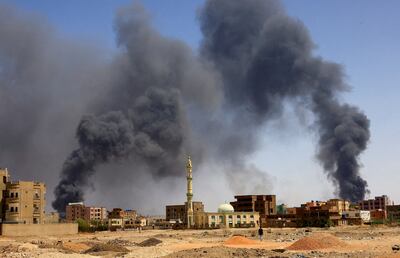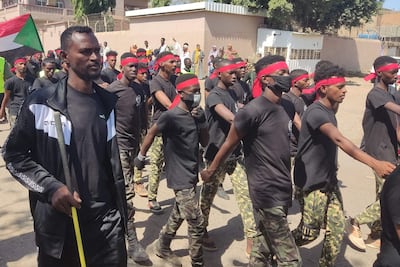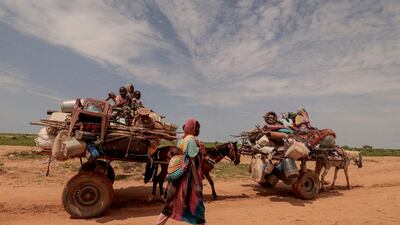The army in Sudan has rejected a truce in its war against a rival paramilitary during Ramadan, dashing hopes that humanitarian assistance could be delivered to the nation where an estimated 18 million people face acute hunger.
Sudan descended into civil conflict in last April after clashes broke out in the capital Khartoum between the military, led by Gen Abdel Fattah Burhan, and the paramilitary group known as the Rapid Support Forces (RSF), commanded by Gen Mohamed Dagalo.
Hopes for a truce were raised at the weekend after the UN Security Council adopted a resolution calling for a ceasefire to coincide with Ramadan, which began on Monday.
The UK-drafted resolution also called on the warring sides to enable the delivery of humanitarian aid to the millions of Sudanese facing hunger.
But the army rejected any truce with the RSF, formerly known as the Janjaweed militia, unless it surrendered the territory it has captured from the army.
“No negotiations with the Janjaweed, whether in Ramadan or any other time, before their complete surrender,” said Gen Yasser Al Attah in a speech at a ceremony marking the completion of basic military training by more than 1,000 volunteers in the eastern city of Kassala.
Gen Al Attah said the army would not heed the call for a truce until the RSF had withdrawn from the capital Khartoum and the western regions of Darfur and Kordofan, as well as Al Jazeera to the south of the capital.
The RSF had welcomed the UN resolution but reports emerged of continued fighting in eastern Sudan on Monday.
A series of ceasefires brokered by Saudi Arabia and the US in the early days of the war were ignored or proved short-lived, with both sides seemingly determined to fight on until victory.
The army has generally fared poorly against the RSF during the war, losing much of Khartoum and a string of cities in the west and south of the capital. However, it appears to have recently regained the initiative with strategic battlefield victories in Omdurman in the greater Khartoum area.
The fighting has destroyed much of the capital and displaced about eight million people nationwide. In Sudan's outer regions, each side has accused the other of war crimes against civilians.

The war has also led to a hunger crisis in Sudan.
The UN's World Food Programme said in a report last month that at least 25 million people across the country and in neighbouring South Sudan and Chad are struggling with soaring rates of hunger and malnutrition due to the war.
The UN agency previously warned that 18 million people were "acutely food insecure" and about 5 million faced starvation.
“Unless this conflict is resolved, unfettered access is granted to humanitarian agencies and funding is received, this crisis will only worsen,” Michael Dunford, the WFP's regional director for Eastern Africa, said in the report.
Unicef, the UN’s women and children agency, has warned the war is pushing Sudan towards famine and a catastrophic loss of life, especially among the young.
Severe malnutrition in children is intensifying beyond its worst projections and there have been outbreaks of cholera, measles and malaria, Unicef said in a report this month.
“There is also evidence of spikes in malnutrition-related child deaths, particularly among the displaced,” it added.

Gen Al Burhan and his one-time ally Gen Dagalo have each sought foreign support and embarked on trips abroad, including to regional heavyweights Egypt and Ethiopia.
Both men have presented themselves as the legitimate leader of Sudan and argued they were fighting to restore the country's democratic transition and bring prosperity.
However, many in Sudan see the war as simply a struggle for political and military supremacy between two generals.
The pair are widely held responsible for indirectly igniting the war when they jointly staged a coup in October 2021 that toppled a civilian-led government that was leading the country’s democratic transition after the removal of dictator Omar Al Bashir in 2019.
The coup plunged the nation into its worst economic crisis in living memory and created a security vacuum that rekindled deadly ethnic rivalries in outlying regions. More than 100 anti-coup protesters were killed by security forces in the months that followed the power grab.


